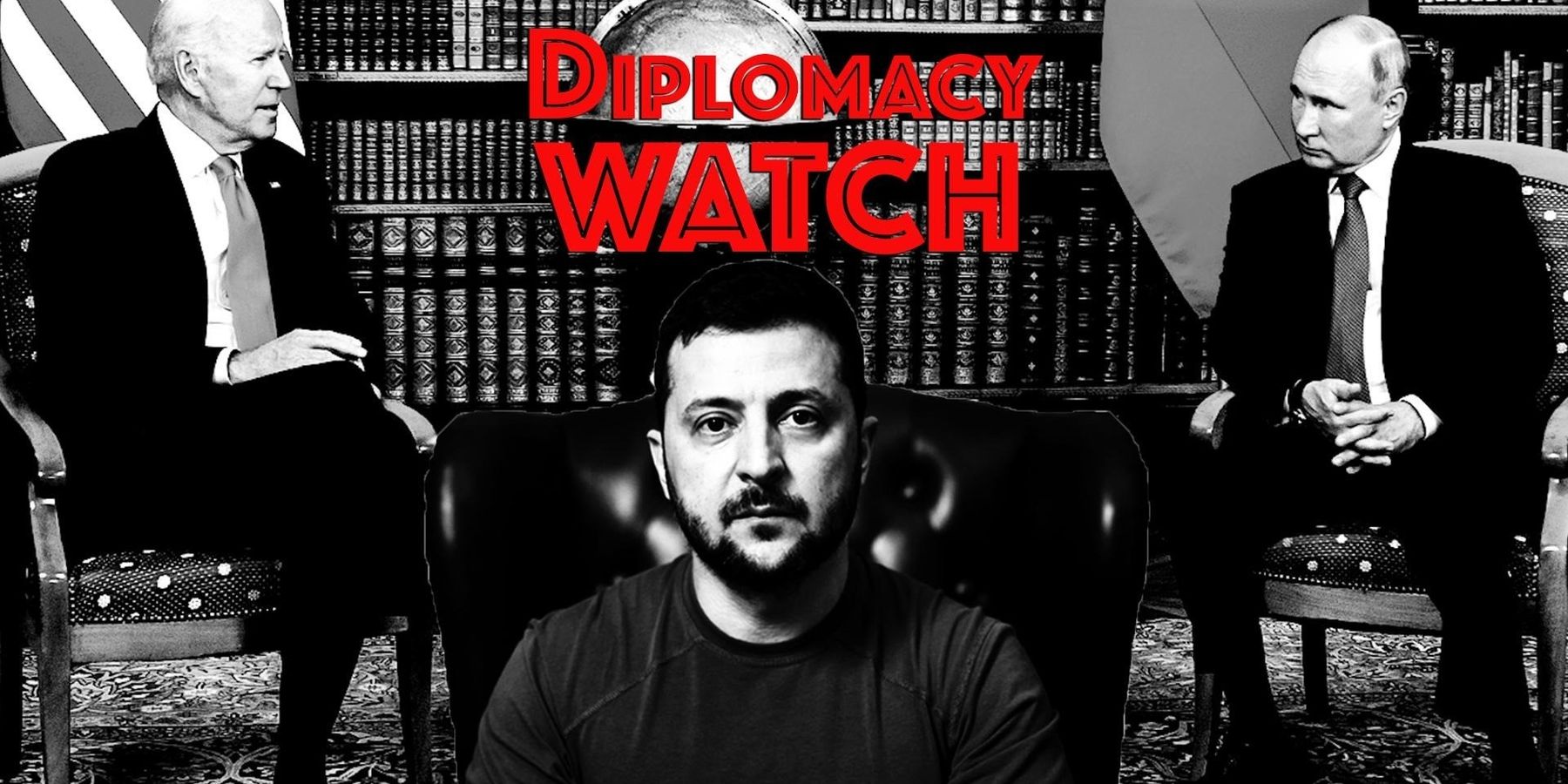Two interviews with national security adviser Jake Sullivan this week revealed the Biden administration’s continued hesitance to pressure Ukraine to open peace talks with Russia, while maintaining that it expects the war will eventually end at the negotiating table and acknowledging that Washington’s ability to support Kyiv’s war effort is being hamstrung by Congress’s inability to approve a new tranche of aid.
During an interview with Julia Ioffe of Puck News, Sullivan quickly dismissed last week’s NBC News report that asserted “U.S. and European officials have begun quietly talking to the Ukrainian government about what possible peace negotiations with Russia might entail to end the war,” citing one current and one former senior U.S. official.
When asked about the assessment — including from a top Ukrainian commander —that the war has reached a stalemate, Sullivan elaborated:
“There’s been a robust debate in Ukraine based on the general’s interview. I don’t want to get into the middle of all that. I’ll just give you our perspective, which is that we believe the battlefield remains dynamic, and we are going to continue to support Ukraine with the tools and resources and capabilities that it needs to continue to try to make progress on the battlefield. We do believe that, ultimately, when Ukraine determines it—because we feel passionately about the article of faith, ‘Nothing about Ukraine without Ukraine’—there will be a diplomatic phase to this. And our job is to put Ukraine in the best possible position on the battlefield so it’s in the best possible position at the negotiating table.”
But separate remarks from Sullivan earlier in the week suggest that Washington is struggling to fulfill what the national security adviser considers its responsibility in this war.
"Each week that passes, our ability to fully fund what we feel is necessary to give Ukraine the tools and capacities it needs to both defend its territory and continue to make advances, that gets harder and harder," Sullivan said during a press briefing on Monday. "So, for us, the window is closing."
President Joe Biden has requested that Congress approve a $104 billion emergency defense supplemental which purports to tackle a number of policy priorities, including $60 billion in aid for Ukraine. But the proposal so far remains in limbo in the Republican led-House, with new leadership instead opting to pass a short-term government funding measure that did not include any money for Ukraine.
Supporters of Ukraine aid still hope that another package will make its way through Congress eventually, but that will not happen until lawmakers return from their Thanksgiving recess, at the earliest.
The lack of funding “is already having an effect on our ability to give Ukraine everything that it needs,” according to Sullivan, “and that effect will only compound over time.”
In other diplomatic news related to the war in Ukraine:
— Ukrainian foreign minister Dmytro Kuleba dismissed those calling for talks with Moscow, pointing to 30 years of “negotiations with Russia that it never respected,” including the Black Sea Grain Initiative from which Russia unilaterally withdrew earlier this year.
“There are no conclusions to be drawn here, except that no one can seriously use the words ‘Russia’ and ‘negotiations’ in the same phrase,” Kuleba wrote on the social media platform X. “Russia's tactic has remained consistent in its many wars over the last three decades: kill, grab, lie, and deny.”
— Hungarian Prime Minister Viktor Orban said that the European Union should not move forward on Ukraine membership talks. “Ukraine is in no way ready to negotiate on its ambitions to join the European Union,” Orban said on Monday. “The clear Hungarian position is that the negotiations must not begin.” EU leaders are preparing to vote next month on whether Kyiv should be invited, and all 27 member nations must agree in order to admit a new country. Slovakia, whose new government recently rejected an aid package for Kyiv, is also expected to be a potential obstacle to Ukraine’s admittance.
— President Joe Biden met with Chinese President Xi Jinping on Wednesday in San Francisco, on the sidelines of the APEC summit. While the discussion mostly focused on other aspects of the bilateral relationship, reports say that Biden reaffirmed U.S. support for Kyiv and “also pressed Xi to continue to withhold military support for Russia’s invasion of Ukraine,” according to the Associated Press. A CNN report from before the meeting said that “US officials believe there might be a limited role Beijing can play in the Ukraine war, notwithstanding China’s deep economic alliance with Russia.”
U.S. State Department news:
During a Tuesday press briefing, State Department spokesman Matthew Miller expressed concern over Congress’s inability to move forward with the White House’s supplemental request.
“So we are at a critical point with respect to aid to Ukraine. The Pentagon has said publicly that they have exhausted somewhere around 95 percent of their funds to provide security assistance to Ukraine – security assistance that’s very important,” Miller said.
















